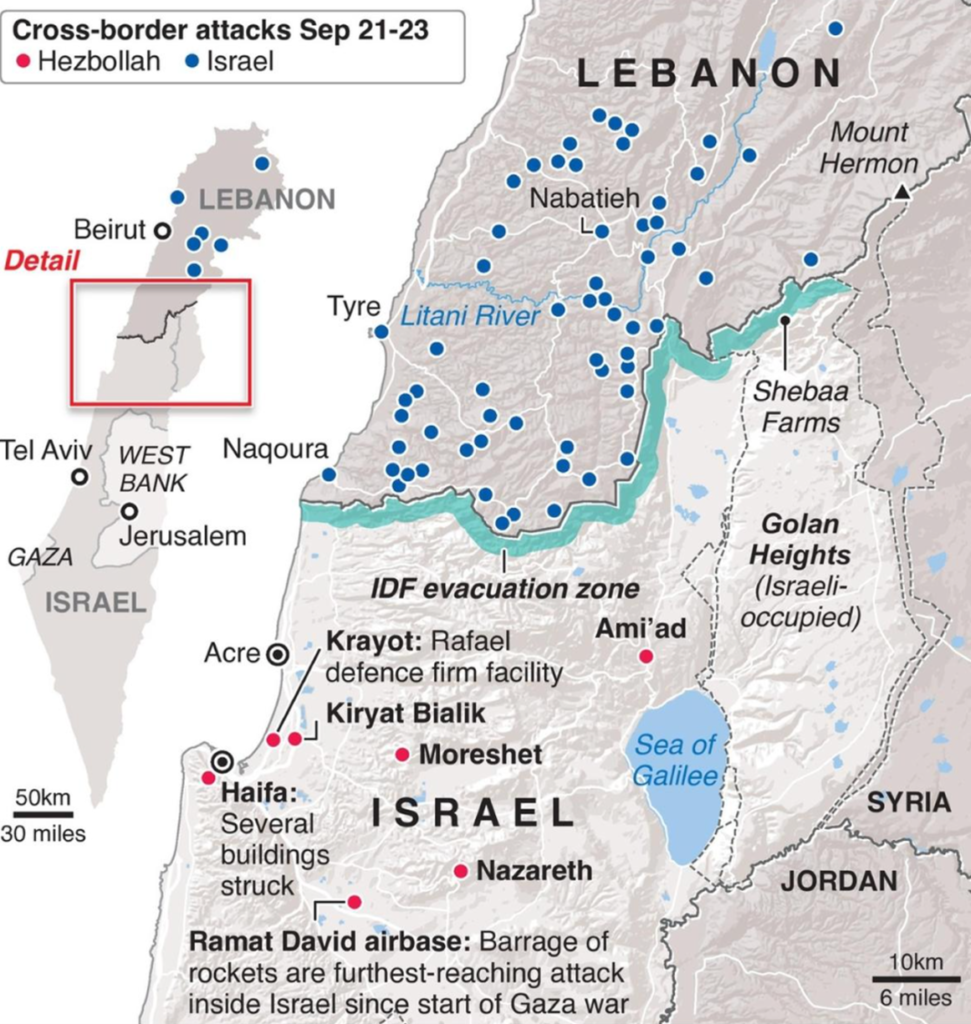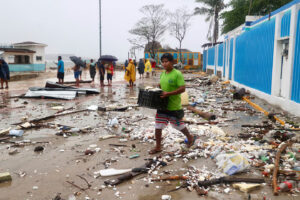Locations Affected: Lebanon, Israel
Tensions have escalated once again in the Middle East after Israel launched strikes in southern and northeastern Lebanon on 23 September, amid the ongoing conflict with the Lebanese paramilitary group Hezbollah. The strikes have resulted in over 492 casualties, marking the deadliest barrage since the Israel-Hezbollah war in 2006.

Increased tensions between Israel and Hezbollah
The escalation follows a series of pager and walkie-talkie explosions in Lebanon on 17 and 18 September, which resulted in several casualties and cross-border attacks by Israel and Hezbollah on 20 and 22 September. The conflict between Israel and Hezbollah has intensified since the beginning of the Israel-Hamas conflict in Gaza in October 2023. Hezbollah has stated that they will continue their attacks on Israel until the war in Gaza is resolved.
Impact of the airstrikes
- The Israeli military stated that it struck 1,600 Hezbollah targets in an operation aimed at destroying the group’s infrastructure.
- The airstrikes targeted multiple towns, villages, and open areas, including Sidon, Marjayoun, Nabatieh, Bint Jbeil, Tyre, Jezzine, and Zahrani in southern Lebanon, as well as the Zahle, Baalbek and Hermel districts in the eastern Bekaa Valley. A building in the Bir al-Abed area of Beirut was also hit by several missiles.
- The Israeli military warned residents in southern and eastern Lebanon to evacuate as it plans to widen its air campaign against Hezbollah. Residents reportedly received audio and text messages from the Israeli military warning them to evacuate buildings allegedly used by Hezbollah to store weapons. The evacuations led to congested roads in several areas, including Beirut. The main highway out of the southern port city of Sidon was jammed with cars heading towards Beirut in the biggest exodus since the 2006 fighting.
- The government ordered schools and universities to close across most of Lebanon and began preparing shelters for people displaced from the south.
- In retaliation, Hezbollah fired more than 200 rockets targeting several Israeli military bases in northern Israel and a weapons manufacturing facility in the Zvulum area, north of Haifa, triggering several air-raid sirens in northern Israel. Airstrikes were also reported in Lower and Upper Galilee regions, injuring two people due to shrapnel.
- Hezbollah launched further strikes on 24 September in northern Israel, after which Israel retaliated with additional strikes in southern Lebanon.
- At least 40 flights to and from Beirut have been cancelled amid the escalating tensions. Qatar Airways, EgyptAir, Tarom and Lufthansa have suspended flights to Lebanon. Most of the cancelled flights were to or from Germany, Saudi Arabia, the United Arab Emirates, Turkey, Ethiopia, Switzerland, France, Jordan, Egypt, Iraq, and Qatar.
Concerns over the possibility of a full-scale war
Hezbollah has not issued a statement regarding Israel’s accusations that the group is storing weapons in residential buildings. However, the group’s retaliatory actions indicate no intention to cease operations against Israel. The continued escalation could lead to a full-scale conflict and further destabilization in the region, analysts warn. United Nations (UN) Secretary-General António Guterres has called for an immediate end to cross-border strikes, while France has called for an emergency UN Security Council meeting to address the situation. The Pentagon has announced the deployment of additional troops to the Middle East as a precautionary measure. Heightened security measures and travel disruptions are expected to persist in Israel, Lebanon and neighbouring countries. Organizations are advised to monitor developments and activate contingency measures as necessary.






